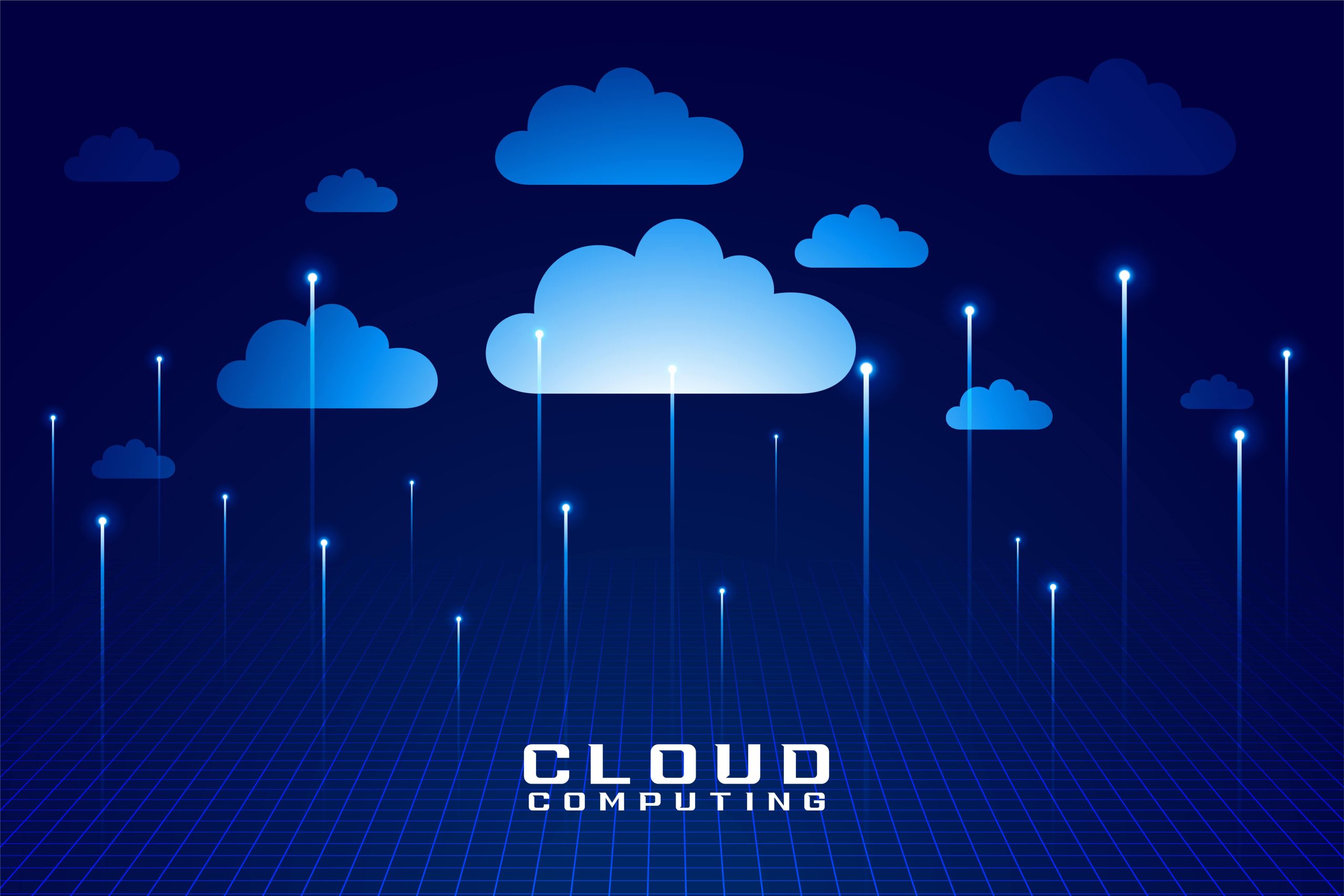The present age is the age of science. More precisely, the present age is known as the digital age. In this digital age, taking advantage of modern technologies, including cloud technology, has become a need of the hour. Moreover, exploiting this technology to get the required traction and enhance the journey of digital transformation is significantly important for businesses.
Various organizations and companies have initiated managing, storing, and processing their information and data with the help of cloud computing services. According to research by Gartner, more than 45 percent of spending on conventional IT solutions will shift toward cloud computing services in 2024. From such status, it can be truly understood how much the adoption of cloud computing services will impact the market and generate various business opportunities.
But what is cloud computing? In this article, we will discuss cloud computing in detail.
What is Cloud Computing?
An imperative that produces on-demand delivery of needed IT resources on the internet is called cloud computing. It exemplifies the entire systems and infrastructure that allows computers to develop an atmosphere, store and process data and information, and complete production. Having such a good service available, the data storage, computing power, and management of the database can surpass the constraints of an on-premise server.
There are numerous experienced performers in the prevailing market, such as Amazon web services, Azure, Google Cloud Platform, etc., which provide various types of cloud-based services for almost all businesses. Let’s decently know them.
Cloud computing can be grouped into three general service delivery categories, which are as follows.
Types of Cloud Computing Services
1. IaaS
IaaS providers like AWS (Amazon Web Services) provide virtual server instances and storage along with some application programming interfaces (APIs) that allow users to migrate workloads to a VM (Virtual Machine). The users or customers have an allotted storage capacity and can stop, start, configure, and access the VM and storage as per their needs.
IaaS providers give small, large, medium, extra large, and compute-optimized instances, in addition to customization for many workloads. For business users, the IaaS cloud is nearest to a center of remote data.
2. PaaS
In this model, cloud providers host various developmental appliances on their infrastructure. The customers or users use these appliances on the internet by using web portals, APIs, or gateway software.
Generally, PaaS is used for software development, and various providers host software after it is completely developed. Some common PaaS products encompass AWS Elastic Beanstalk, Salesforce’s Lightning Platform, and Google App Engine.
3. SaaS
Distribution model, SaaS provides various software applications over the internet. Such applications are commonly known as web services. Users or customers can easily access SaaS applications and services from any location using a mobile device or computer.
The users easily access databases and applications software in a SaaS model. Microsoft 365 for email services and productivity is one of the most common examples of a SaaS application.
Cloud Technology Deployment Methods

You can opt for any of the services mentioned above for your business according to your needs. But before that, you have to be sure that you have a good knowledge of the three important ways to deploy them below.
1. Private Cloud
This could provide a proprietary cloud environment primarily dedicated to a commodity of the individual business. The physical elements of this cloud type are particularly stored at the data center of vendors or on-premises. The private cloud is accessible only by a single business, so this model provides the most significant degree of control. This model’s advantages mainly include the following:
- Advanced and high-security methods.
- Customized architecture.
- The capability to provide computing resources in a virtualized atmosphere as an entity.
Additionally, in certain cases, a firm regulates and maintains the on-site infrastructure of a private cloud whereas transmitting the services of cloud computing to their internal users via the intranet. However, the organization or corporation contracts with a third-party cloud to host and regulate exclusive servers off-site in other representatives.
2. Public Cloud
This cloud uses the web to store and organize access to data, information, and applications. This public cloud delivers an environment where all the necessary shared resources can be utilized per the needs.
As these resources are shared over the internet, this public model permits organizations to scale more effortlessly—the capability to pay for the needed cloud resources is a primary advantage over regional servers. Moreover, the public cloud model service providers procure robust security standards to protect users’ data from being accessed by third parties or hackers.
3. Hybrid cloud
This type of cloud combines private and public cloud deployment models. It allows organizations to take advantage of transmitted resources while using their traditional IT infrastructure for crucial security requirements.
This cloud model permits companies to store sensitive and confidential information or data internally and access it through applications running in a public cloud. To comply with security regulations, for instance, a company can store personal data in a private cloud model and perform resource computation in a model public cloud.
Moreover, businesses can opt to take various cloud approaches. This means that they can use more than one public cloud model. Also, this approach can be utilized for workload distribution throughout different cloud platforms, permitting companies to optimize their atmosphere for flexibility, performance, and cost savings.
What Makes Cloud Computing So Important?
Cloud computing is much more important because of its level of utility. To make it simple, aligning with an expert cloud service provider can provide you with various advantages that have the potential to take your business to another level. Let’s understand some of the benefits of cloud computing.
1. Smart Mobility
Using cloud services will assist your business in accessing corporate information and data through smart devices from anywhere. This assists all your employees to remain up to date with the company even during holidays, busy schedules, or traveling. Moreover, you can help your freelance or remote staff members to develop a better work-life balance for a longer duration.
2. Detailed Insight
Nowadays, various cloud-based storage services offer combined analytics to assist you in tracking your data or information in real time. With the help of this information or data, you can develop customized reports that will fulfill your ultimate objectives. Profits gained by Sunny Delight, a beverage company, is the perfect example of what insights into cloud computing can do for your organization or business.
3. Enhanced Collaboration
The main benefit of cloud computing is that your staff or team members can view, share or transfer vital data and information single-handedly. The company-wide collaboration process gets much more simplified with cloud computing services. Moreover, certain cloud services provide a collaborative social space to engage with every staff member or employee of your organization.
4. Quality Delivery
Cloud computing enables your organization with a digital transformation platform where all the necessary data and information are stored in a unique format. This averts any possibility of data havoc and provides quality all the time without organizing silos. Additionally, every staff member has access to the same information, which results in error-free data delivery.
5. Sustainability
The appropriate use of cloud services assists in facilitating environmental productivity. You can contribute towards the development of sustainable workplaces with the help of virtual services, preventing excess wastage of paper, enhancing energy efficiency, and lessening employee transportation-associated emissions.
6. Leading Edge
Enforcing a cloud solution enables your corporation to progress an active edge over others and aligns you with the understanding curve. 77% of companies feel cloud technology insulates them from the crew, and 16% think this benefit is crucial, says the latest Verizon research.
Conclusion
Cloud computing is one of the best innovations in today’s digital age. Every individual, organization, or business wants to know more about it and desires to benefit from cloud computing services. Cloud computing is a new way of digital transformation. Businesses using cloud computing networks offer their customers various benefits and make a strong bond with them. So, as a business owner, you should choose cloud computing as your top priority for storage. Moreover, businesses retain more and more customers with the help of cloud computing.

